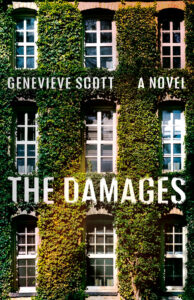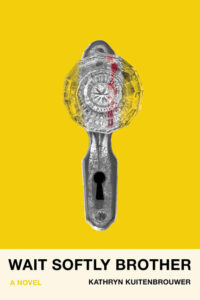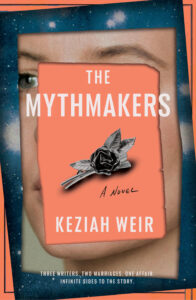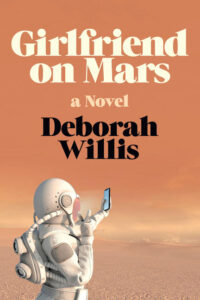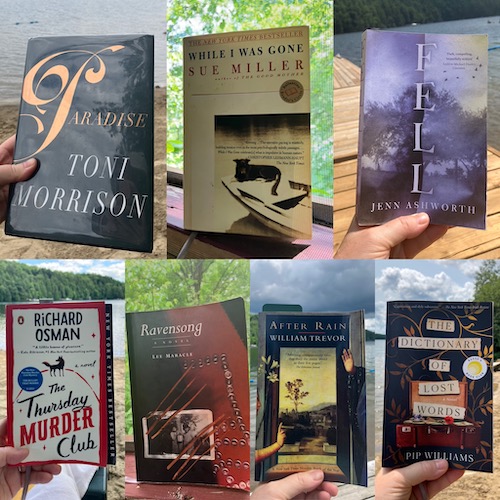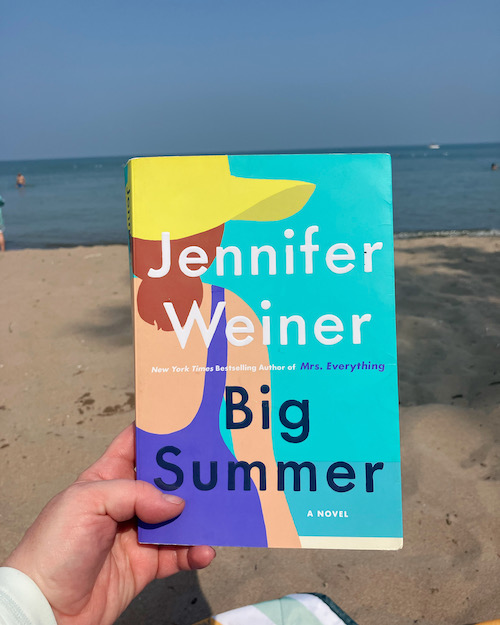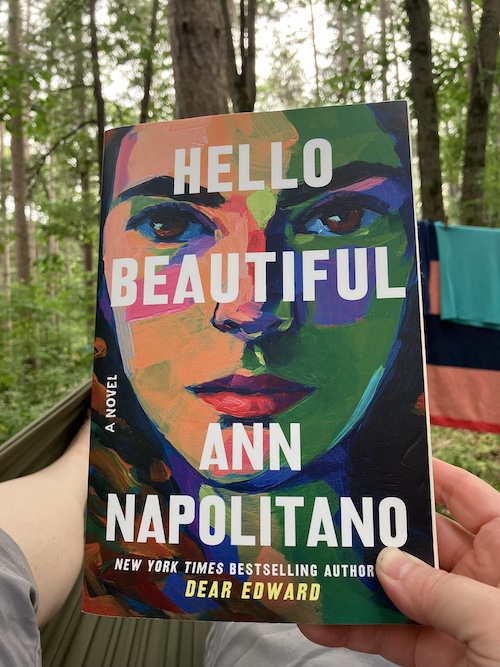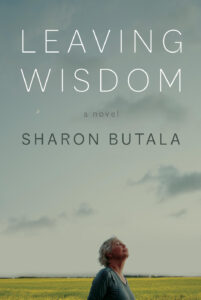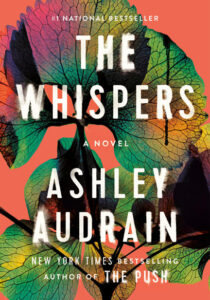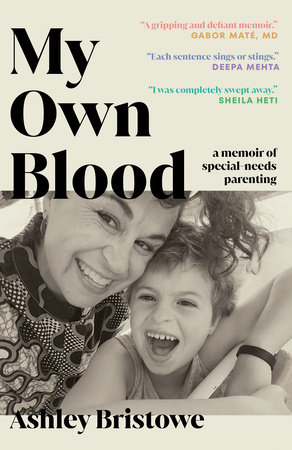August 8, 2023
Yellowface, by R.M. Kuang
So, I can’t say I’d necessarily recommend R.M. Kuang’s Yellowface to anyone else who has a new novel coming out in 28 days, because it’s just a little too on the nose, a satire that’s so real about the pressures and cutthroat competition of the publishing industry, the high stakes and low odds which “have made it impossible *for white and nonwhite authors alike* [emphasis mine] to succeed…” (to quote from the novel’s white narrator, who steals a manuscript from her dead friend, an Asian-American bestselling novelist, whose CV is not entirely distinct from that of R.M. Kuang herself—there are so many complicated meta-layers of to this work!). Mostly though, what a white author who sees her own experience in this novel is quite likely to miss is that Yellowface is also a satire of the way in which white women are able to put themselves at the centre of every story, wholly accustomed to being “the expected reader” (to borrow a phrase from Elaine Castillo) of every narrative they encounter, and oh, Kuang plays some tricks with that tendency with both her characters and readers alike. Edgy and brilliant.
August 3, 2023
The Damages, by Genevieve Scott
So just say you wrote a novel about the toxicity of sexual politics in the 1990s with a campus setting, a novel with duel timelines, the contemporary story set against the #MeToo movement as the protagonist grapples with allegations of sexual misconduct against her former partner, the father of her child, and the allegations and their fallout stir up memories of a catastrophic event on campus more than two decades before during which the protagonist’s roommate went missing, creating a fallout that left the protagonist’s reputation in ruins and trauma she’s still just beginning to process…
Wouldn’t it be SO ANNOYING when Rebecca Makkai’s smash hit I Have Some Questions for You comes out just months before your pub date?
A novel whose description so uncannily matches your own (there’s something in the water!) and whose enormous success could possibly overshadow your own?
Thankfully, however, there is this: If you liked I Have Some Questions for You (and a lot of people did!), you should definitely pick up Genevieve Scott’s The Damages. And there is also this: The Damages is not derivative in the slightest and turns out to be its own specific literary creature, a book that held me rapt throughout, and also doesn’t suffer from the overstuffedness that weighed down Makkai’s book at times (though I ultimately felt that the overstuffedness of IHSQFY was deliberate, the point).
The Damages takes place at a fictional version of Queens University in the winter of 1998 during a devastating ice storm that cut off power, caused vast damage and left people stranded throughout the northeast of North America. The novel’s narrator is Ros, who’s trying hard to fit in during her first year at university and who is eager to distance herself from her earnest and wholesome roommate who is the antithesis of cool. But when her roommate goes missing during the chaos and upheaval from the storm, everybody around her declares Ros responsible for what happened, and this shatters the tentative place she’d made for herself in that community, leading her to drop out of school.
22 years later, set against the backdrop of the Covid-19 pandemic, Ros and her son are isolating in Ontario’s cottage country as she’s also processing allegations publicly made against her ex-partner, a renowned children’s author. She’s forced to finally reckon with notions of her own culpability, her responsibility, and the possibility that perhaps she’s been a victim too. As with the best books inspired by #MeToo, she doesn’t come to neat conclusions, but instead engages with the mess of it all, teasing out the multitudinous threads, asking questions instead of claiming to have all the answers. A terrific read.
August 2, 2023
Wait Softly Brother, by Kathryn Kuitenbrouwer
The pieces of Wait Softly Brother—a novel about a writer called Kathryn who retreats to her childhood home in Ontario’s Hastings County after fleeing her marriage, she and her aging parents in a relationship of mutual irritation as she pesters them for details of her brother, stillborn before her own birth, desiring some kind of fragment to make the fact of his existence feel tangible, but her mother hands her a letter from a long ago ancestor instead who fought in the Civil War, Kathryn making up HIS story instead as a way to interrogate maleness and brother, and missing pieces of a whole, all the whole torrential rain is falling for weeks and weeks, the family farmhouse an island cut off from the rest of the world—culminate in the richest and most satisfying kind of story, a deep literary mystery. On dwellings, and dwelling, and wells and welling. So so excellent.
July 27, 2023
The Mythmakers, by Keziah Weir
Okay, hear me out: Lily King’s Writers and Lovers meets Meg Wolitzer’s The Wife (which it directly references!), with a healthy and surprising sprinkling of astrophysics and consideration of the possibility of a multiverse. I LOVED this book, The Mythmakers, the fiction debut by Keziah Weir, a senior editor at Vanity Fair (who has British Columbia ties, so the book gets to be Canadian!). It’s about Sal, a struggling magazine writer whose life has just imploded and who is surprised, no, perhaps enchanted, to find herself within the pages of The Paris Review as a character in a story by an older author she’d met at a book launch years before. But then she reads the story’s introductory text to discover that the author, Martin Scott Keller, had recently died, and also that the story is an excerpt from his final novel, a long-awaited text. Well, naturally, Sal wants to read the rest of the story, and concocts a scheme wherein she connects with his widow under the guise of writing a magazine piece about the experience of discovering herself in fiction, but then the story becomes more tangled than that, too tangled for magazine piece, even long-form.
The Mythmakers is rich and absorbing, a fast gripping-thrill, but also deeply literary, about the nature of story and storytelling, and also the nature of the universe, and of marriage, and love, and the way myths—in particular that of the male genius—are propagated and upheld. It’s a story about art, and art-making, and science, and sexual politics, and gender, and it’s also slightly uncanny, it’s narrative voice hard to pin down, sometimes Sal, sometimes Martin, or Moira, his wife, but is it really?
Who’s telling the story? Who’s pulling the strings?
July 26, 2023
Girlfriend on Mars, by Deborah Willis
The premise sounds like a gimmick: Kevin is a failed screenwriter who now ekes out a vague living as a film extra while growing pot in his Vancouver basement apartment, the enterprise—until lately—overseen by his highly capable girlfriend, Amber, the two of them a couple since high school, after which they managed to escape the confinements of their hometown in Northern Ontario (as well as Amber’s dashed dreams of Olympic glory after an injury ends her gymnastics career, the freight of her evangelical upbringing, and Kevin’s overbearing troubled mother) for a new life on the west coast. But that new life never proceeded according to plan, and now Amber is gone, having won a spot on a reality show whose contestants are vying for a one-way-trip to Mars—and it turns out that Amber stands a mighty good chance of winning, of escaping Earth and all the doom inherent in its future. And escaping Kevin too, but he’s just not willing to give up on her yet.
Girlfriend on Mars—Deborah Willis’s first novel following her Giller-longlisted story collection The Dark and Other Love Stories—is really funny, a whip-smart satire, and also intensely moving, even in its more ridiculous moments, because these characters caught in an awfully silly situation have arrived on the page with perfectly tuned back stories providing real emotional heft to a story that otherwise might be so light as to be weightless. This was a story that had me turning its pages with no idea how and where it might possibly end, and a little warily too because I worried these characters existential dread could be a trigger for my own anxiety, but it all came together in a way that was sad, gorgeous and perfect. I heartily recommend!
June 26, 2023
Leaving Wisdom, by Sharon Butala
Leaving Wisdom is the latest from Sharon Butala, author of over twenty books of fiction and nonfiction whose vision of the Canadian west has always made me think of her in the company of Joan Didion, and she continues to remap her familiar terrain in this story of aging and coming to terms with one’s history (and history in general) set in the fictional Saskatchewan town that her protagonist, Judith, decides to the return to in a post-concussion fog.
The concussion occurs after a fall at what was supposed to be Judith’s retirement lunch after a long career as social worker in child protection/family services. In the days that follow, Judith’s brain is confused, her head aches, and she’s overwhelmed by considering the threads of her life, in particular her four daughters, who all continue to occupy her attention in different ways, her two late husbands, and the family she left behind as a teenager when she fled their piety and the suffocating small town of Wisdom, a place in which she realizes she has unfinished business still and so she decides she must return.
Once re-established in Wisdom, Judith tries to ease her way into a relationship with her estranged siblings, continues to worry about her daughters, and discovers her father’s own traumatic history in World War Two, which becomes connected in her mind to a local act of antisemitism. Meanwhile there are strange and troubling goings-on at the house next door which suggest one can never travel far enough to escape the world—let alone family histories and one’s own past.
Leaving Wisdom is quiet, thoughtful and utterly absorbing novel about families, aging, trauma and history, and how all of these factors happen to intersect.
June 26, 2023
Believe the Hype
Wow, did Ashley Audrain’s The Whispers live up to the hype, and then some. (Most sophomore novel don’t!) It was reminiscent of Lianne Moriarty’s Truly Madly Guilty, a book I LOVED, but then managed to turn into a literary creature all its own with such complicated, deeply imagined characters whose stories were interwoven in ways that never stopped surprising me. The plot is propulsive and rich with suspense, but also poses some fascinating questions about women’s choices and women’s lives, motherhood and infertility. Such a fantastic read.
June 21, 2023
My Own Blood: A Memoir of Special Needs Parenting, by Ashley Bristowe
“Anyone who claims that our society cares about people with special needs, families in crisis, mothers in general, or the exigencies of working parents can suck my strap-on. Individuals care, when there’s an inescapable or financial reason that makes it impossible not to. But society at large cares not a lick. I didn’t really know this before 2009.”
Ashley Bristowe’s memoir My Own Blood—just out in paperback—is a tough, brutal, emotional, excellent, impossible roller coaster of a read. I say “impossible” because I keep trying and failing to make sense of what was her reality for so many years (and continues to be in some ways), to tie her story in a tidy knot, and I can’t, which is fitting because my sense of impossibility about this story ain’t got nothing on what it must have been to live it.
When Bristowe’s second child is born in 2009 and diagnosed with a condition so rare that it doesn’t even have a proper name yet and only 76 other people had ever been diagnosed, her story diverges from the path she’d been expecting as her family grew—she and husband were freelancers, lived a creative and colourful life rich with travel and adventure. Frustrated by a lack of support for her son’s development in those crucial early years, and by continued entanglement in red tape and bureaucracy specially designed to keep families from accessing care and funding for which they’re eligible (and a medical system where authorities never admit to not knowing or having no answers, and instead are mostly fluent in the language of bullshit, which Bristowe is NOT HAVING), she finally finds the answers she’s looking for with a US establishment dedicating to fulfilling the potential of children with delays, disabilities, and brain injuries, whose officials believe it distinctly possible that, with years of intensive therapy, special diet, and more, that her son will be able to walk, to talk, to read—all those things that everyone has told Bristowe will never happen.
So in some ways this is a story of triumph, but in order to reach that triumph, Bristowe is forced to sacrifice everything—her career, her physical and mental health, many of her relationships, and general sense of well-being—to give her life over to Alexander’s treatments with a dedication that doesn’t always make sense to those around her. And so I’m not really sure that’s such a triumph after all—Bristowe writes so powerfully about her despair, her loneliness, her sense of absolute rage at systems that broke her and broke her again, but all the while she kept going, making clear that she’s an incredible force of a human, as well as an inspired and beautiful writer.
So was it worth it! YES! And NO! Because life isn’t tidy like that, is instead brutal, random, and totally unfair sometimes, where love and rage exist in equal measure (and there is so much love here). This is also a tricky book because as it rails against ableism and the low-expectations that our society has of the possibilities of disabled people’s lives (which conveniently correlates to how little we’re willing to invest in them), the idea of disability as something to be fixed is also something to trouble over, but I wonder if that’s just another way for some of us to pass the buck?

